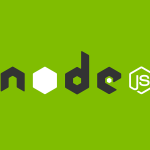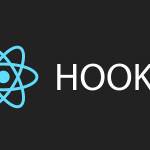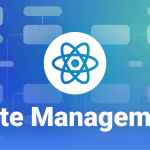When most people hear the word blockchain, they instantly think of Bitcoin or other cryptocurrencies. But blockchain technology goes far beyond digital money. Today, it is transforming industries that have nothing to do with finance from healthcare and education to real estate, logistics, and even art.
Blockchain’s ability to provide transparency, security, and decentralization is unlocking a new digital revolution. Let’s explore how this technology is reshaping non-financial sectors across the globe.
Table of Contents
Understanding Blockchain Beyond Crypto
At its core, blockchain is a distributed digital ledger that records transactions across multiple computers. Once data is entered into a blockchain, it cannot be altered without the consensus of all participants, making it incredibly secure and trustworthy.
Unlike traditional centralized databases that rely on a single authority, blockchain is decentralized, meaning every participant has access to the same verified information. This eliminates the need for intermediaries and creates an ecosystem of trust between strangers a concept with vast applications beyond finance.
1. Healthcare
The healthcare industry deals with massive amounts of sensitive data, from patient records to research results. Blockchain can make this information secure, interoperable, and tamper-proof.
- Patient Data Management: Medical histories can be stored on a blockchain, allowing patients and doctors to access accurate information anywhere, anytime, without risking data breaches.
- Drug Supply Chain Transparency: Pharmaceutical companies can track medicines from production to delivery, helping prevent counterfeit drugs.
- Research Integrity: It can record clinical trials transparently, ensuring that research data remains unaltered and verifiable.
By improving data accuracy and accessibility, it helps doctors make better decisions while reducing costs related to paperwork and administration.
2. Education
Academic records, degrees, and certificates are often prone to forgery and verification delays. It offers a solution by providing digital credentials that are secure and instantly verifiable.
- Universities can issue blockchain-based diplomas that employers can authenticate within seconds.
- Online learning platforms can track students’ progress and achievements on transparent records.
- It can also enable lifelong learning records, allowing individuals to maintain verified skill histories throughout their careers.
Institutions like MIT and the University of Nicosia are already using blockchain-based diplomas, setting the stage for global adoption.
3. Real Estate
The real estate market is often bogged down by paperwork, fraud, and lengthy verification processes. Blockchain introduces smart contracts self-executing agreements that automatically carry out terms when conditions are met.
- Property titles and deeds can be stored securely on blockchain networks, reducing fraud.
- Smart contracts can automate transactions, eliminating the need for brokers or notaries.
- Tokenization allows fractional ownership of property, enabling small investors to buy a share of real estate projects.
Countries like Sweden and the United Arab Emirates are experimenting with blockchain-based land registries to improve transparency and efficiency.
4. Supply Chain and Logistics
Global supply chains are complex and often lack visibility. It brings end-to-end traceability to this ecosystem.
- Every step of a product’s journey from manufacturing to delivery can be recorded and verified.
- Consumers can check the authenticity and origin of goods such as food, luxury items, or electronics.
- Blockchain ensures accountability, reducing losses, delays, and corruption.
Major brands like Walmart and IBM have already implemented its solutions to monitor food supply chains, cutting contamination tracking time from weeks to seconds.
5. Blockchain in the Creative and Entertainment Industries
Artists, musicians, and content creators often struggle with ownership rights and fair compensation. It enables direct interaction between creators and consumers, ensuring transparent royalty payments.
- Platforms can use it to record ownership and distribute payments automatically through smart contracts.
- Non-fungible tokens (NFTs) give artists full control over their work and its resale value.
- Film studios and record labels can maintain verifiable records of intellectual property, protecting creators from piracy and misuse.
This decentralized system restores control to creators, empowering them in industries often dominated by intermediaries.
The Broader Benefits
Across industries, it delivers several universal advantages:
- Transparency: Every transaction is publicly recorded and verifiable.
- Security: Data encryption and immutability make unauthorized changes nearly impossible.
- Efficiency: Automated systems reduce paperwork, delays, and operational costs.
These qualities make it an essential tool for industries that rely on accurate data and secure exchanges.
Challenges to Widespread Adoption
Despite its potential, it faces hurdles before becoming a mainstream technology:
- Scalability: Handling large volumes of transactions efficiently remains a technical challenge.
- Regulation: Many countries lack clear laws regarding blockchain use in non-financial sectors.
- Interoperability: Different networks need better integration standards.
Overcoming these challenges will require collaboration between governments, private industries, and tech innovators.
Conclusion
Blockchain is no longer just the foundation of cryptocurrency it is a transformative force reshaping how information, assets, and identities are managed across countless sectors. From healthcare and education to real estate and logistics, its applications are creating systems that are more secure, efficient, and transparent than ever before. Also Check Rise of Voice Technology – Comprehensive Guide – 2025







1 thought on “Impact of Blockchain on Non-Financial Industries – Free Guide 2025”